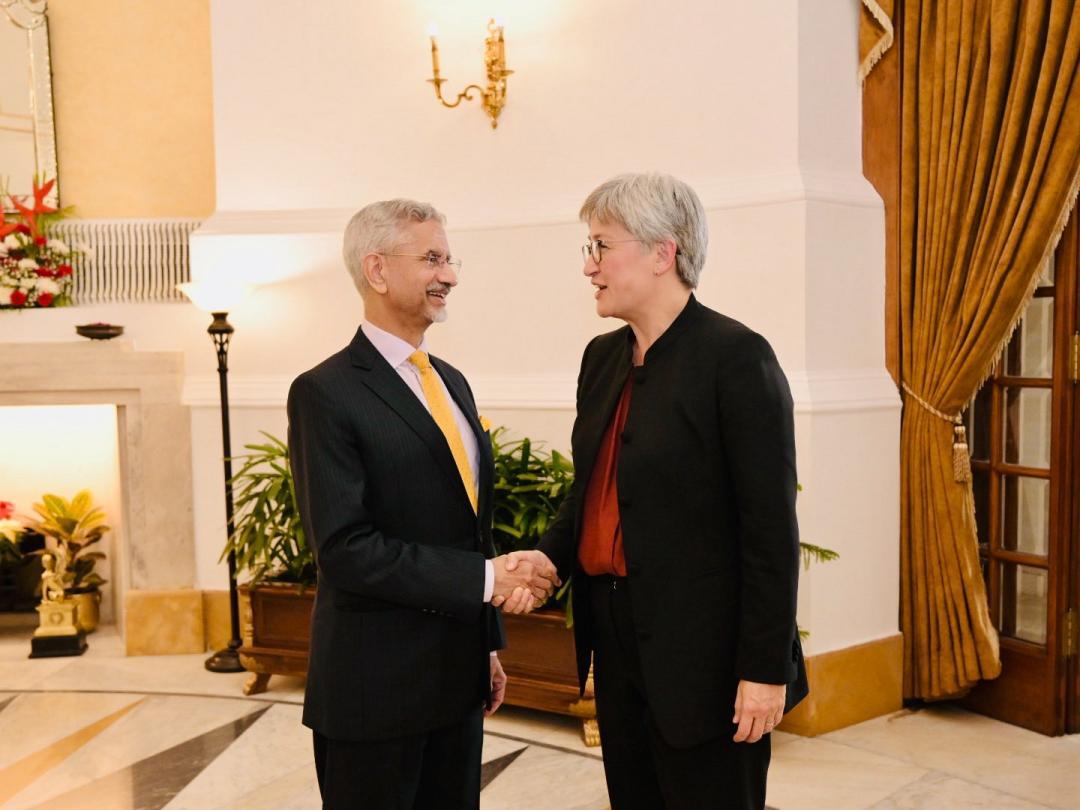
You’ve beaten us in both Men’s & Women’s Cricket,’ Australia leader jokes with Jaishankar
In a lighthearted moment during a meeting between Australian Foreign Minister Penny Wong and Indian External Affairs Minister S Jaishankar, cricket took center stage. Wong jokingly remarked, “You’ve beaten us in both Men’s and Women’s Cricket,” highlighting the recent successes of Indian cricket teams against their Australian counterparts. This comment not only showcases the camaraderie and sportsmanship between the two nations but also underscores the significance of cricket as a common language that can bridge diplomatic gaps.
The meeting between Wong and Jaishankar is significant for several reasons, but what makes it particularly noteworthy is the frequency of their interactions. According to Wong, Jaishankar is the minister she has met most in her current role, indicating a strong and active diplomatic engagement between Australia and India. This frequent interaction is a testament to the growing importance of the Australia-India relationship, which is being nurtured through regular dialogue and cooperation on various fronts, including trade, defense, and culture.
One of the recent highlights in the Australia-India relationship has been the performances of their respective cricket teams. The Indian women’s cricket team made history by defeating Australia in the semifinal of the 2025 Women’s World Cup in October. This victory was a milestone for Indian women’s cricket, marking a significant step forward in their quest for global recognition and success. The win was not just a testament to the team’s skill and dedication but also a reflection of the growing support and investment in women’s cricket in India.
Following the women’s team’s success, the Indian men’s team also tasted victory against Australia, winning the T20I series in November. This series was closely watched and highly competitive, with both teams displaying exceptional skill and sportsmanship. The Indian team’s win was a result of their consistent performance and strategic play, which outmaneuvered their Australian counterparts.
Wong’s joke about being beaten in both men’s and women’s cricket is more than just a diplomatic courtesy; it reflects the sporting spirit and the mutual respect between the two nations. Cricket, often referred to as a religion in India, holds a special place in Australian culture as well, making it a common ground for conversation and connection between leaders from both countries.
The bilateral relationship between Australia and India is multifaceted, with cooperation in areas such as education, science and technology, and strategic affairs. The frequent interactions between their foreign ministers are a part of this broader engagement, aimed at strengthening ties and exploring new avenues for collaboration. The mention of cricket in their meeting serves as a reminder of the power of sports to unite people across borders and cultures, providing a softer dimension to international diplomacy.
In the context of global geopolitics, the Australia-India relationship is gaining prominence, especially within the Indo-Pacific region. Both countries are key players in regional forums and are actively engaged in promoting peace, stability, and prosperity. Their cooperation extends to addressing common challenges such as climate change, terrorism, and economic inequality, making their diplomatic interactions significant for regional and global stability.
As the world navigates through complex geopolitical landscapes, moments of levity and shared interest, such as the one shared by Wong and Jaishankar over cricket, serve as a reminder of the human element in diplomacy. They highlight that beyond the formal agendas and policy discussions, there is a personal and relational aspect to international relations that can foster deeper understanding and cooperation.
In conclusion, the joke about cricket during the meeting between Penny Wong and S Jaishankar is a small yet significant moment in the broader narrative of Australia-India relations. It symbolizes the friendly and competitive spirit that exists between the two nations, not just on the cricket field but also in their diplomatic endeavors. As both countries continue to engage on various fronts, such lighthearted exchanges can play a role in building a stronger, more personal connection between their leaders, ultimately contributing to a more robust and enduring partnership.






